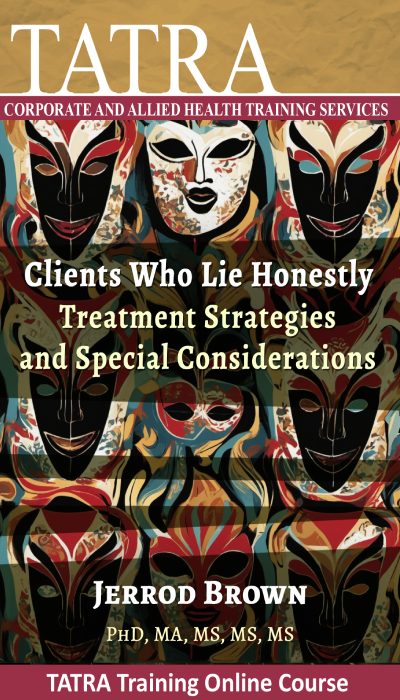03 Jan Clients Who Lie Honestly: Treatment Strategies & Special Considerations

Confabulation—the unintentional creation of false memories—poses significant challenges in mental health care. These false memories can range from subtle distortions of real events to elaborate fabrications of events that never occurred. Commonly observed in individuals with neurological conditions (e.g., Alzheimer’s), psychiatric disorders (e.g., schizophrenia), and developmental conditions (e.g., FASD), confabulation has profound implications for assessment and treatment, often complicating the therapeutic process.
This course provides mental health professionals with the clinical knowledge and tools needed to address confabulation effectively. By the end of the training, attendees will be better equipped to navigate the complexities of confabulation, from understanding its origins to mitigating its impact on clinical care.


This training equips participants with the clinical knowledge and practical tools needed to:
- Understand and define confabulation, including its presentation in mental health treatment.
- Identify risk factors for confabulation at both the individual and environmental levels.
- Analyze the consequences of confabulation within mental health care settings.
- Explore implications for assessment and treatment strategies.
- Examine cutting-edge research on confabulation and discuss future research directions.
Target Audience
This course is tailored for mental health counselors, psychologists, social workers, drug and alcohol counselors, marriage and family therapists, telehealth treatment professionals, and other clinical mental health practitioners.


This online workshop will give you instant access to 2 sessions of video content, accessible via streaming on our website, as well as downloadable PowerPoint slides. You can view the course content in your own time, there is no time limit on access.
The duration of this workshop is 2 learning hours.
Please click the green ‘Mark Complete’ button on each module as you progress. A certificate of completion will be generated upon finishing the course and completing a short assessment quiz. If the certificate is not showing, please confirm you have marked all sections as ‘Complete’. Please consult your professional organisation/association to confirm whether you are able to claim any CPD points/hours for this online workshop.



 Jerrod Brown, PhD, MA, MS, MS, MS
Jerrod Brown, PhD, MA, MS, MS, MS